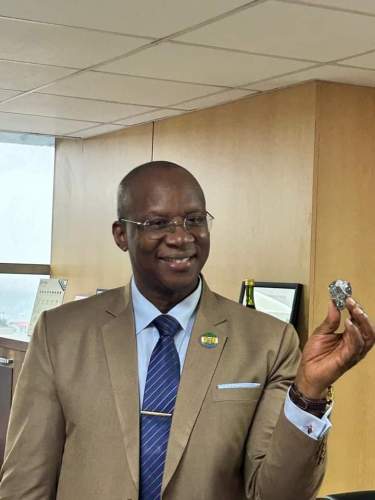By Amin Kef (Ranger)
The National Civil Registration Authority (NCRA) continues to highlight the importance of acquiring Biometric ID Cards, urging citizens and non-citizens across Sierra Leone to collect their cards at designated registration and collection centers. This initiative is part of the ongoing process to enhance identity security, ensure efficient service delivery, and prevent identity fraud.
The Biometric ID Card, which contains a unique National Identification Number (NIN), goes beyond standard identification. It offers a robust mechanism for securing individual identities. The NIN assigned to each cardholder is unique and cannot be shared, reducing the risks of identity theft and fraud—issues that are becoming increasingly problematic in today’s digital landscape.
In addition to strengthening identity security, the Biometric ID Card is now a mandatory requirement for accessing several critical services in Sierra Leone. A recent Cabinet directive mandates that both citizens and non-citizens present their ID cards when engaging in specific public and private transactions. This includes banking operations, where the ID card adds a layer of security to prevent fraudulent activities. Law enforcement agencies have also made the card a requirement at checkpoints across the country to ensure accurate identification of individuals.
Moreover, the Biometric ID Card is now a prerequisite for sitting various public exams. For instance, students intending to take national exams like the West African Senior School Certificate Examination (WASSCE) must present their Biometric ID Cards. This measure not only helps in verifying candidates but also strengthens exam integrity by reducing cases of impersonation.
Despite the card’s critical importance, the NCRA reports that many individuals have yet to collect their cards, even after being notified via SMS that their cards are ready. A significant number of these uncollected cards remain at district offices and collection centers across the country. Factors such as incorrect or inactive phone numbers provided during registration have hindered effective communication. In some instances, applicants used phone numbers belonging to relatives or friends, making it challenging for the NCRA to reach them directly.
To address this issue, the NCRA is urging all applicants who registered on or before July 31, 2024, to visit the registration or collection center where they initially applied, even if they have not received an SMS. Applicants are reminded to bring their ID application slips, which will expedite the collection process.
In a related development, the NCRA has rolled out a new initiative aimed at enhancing identity protection by linking the National Identification Number (NIN) to mobile phone SIM cards. This initiative is part of the Government’s broader effort to safeguard identities and prevent mobile networks from being exploited for criminal activities.
Between September 1 and November 30, 2024, all mobile phone users must link their NINs to their SIM cards. Failure to do so could result in service disruptions, including the inability to make calls, send SMS messages, or conduct mobile money transactions. The objective is to ensure that every active SIM card in Sierra Leone is tied to a verified identity, thereby bolstering national security across the communication network.
To facilitate the collection of Biometric ID Cards, the NCRA has established several registration and collection points, including:
- NCRA Headquarters: 2 Walpole Street, Freetown
- NCRA Office: 23B Off Kingharman Road, Freetown
- NCRA Office: Kennedy Street, Freetown
- NCRA Branch Office: 230 Lumley Road, Freetown (By the Roundabout)
- NCRA Office: Waterloo, along the Freetown Highway (Opposite the Police Station)
- Regional NCRA Offices in Bo, Kenema, Makeni, and Port Loko
For further information, the NCRA can be reached via the following contacts:
– Mobile: +232 33 939740 / +232 79 578063
– Website: [www.ncra.gov.sl](http://www.ncra.gov.sl)
– Email: info@ncra.gov.sl
The NCRA also offers corporate issuance of Biometric ID Cards for both public and private institutions.
As Sierra Leone moves towards a more secure and efficient identification system, the Biometric ID Card has become a critical tool for identity management and access to essential services. Whether for banking, exam eligibility, or communications security, the ID card plays a vital role in the daily lives of residents. The NIN-SIM card linkage initiative further underscores the Government’s commitment to national security and service enhancement.
In light of these developments, it is imperative that all eligible individuals take immediate steps to secure their Biometric ID Cards. The NCRA remains dedicated to ensuring that no one is left behind in this nationwide effort to build a more secure identity management system for Sierra Leone.












